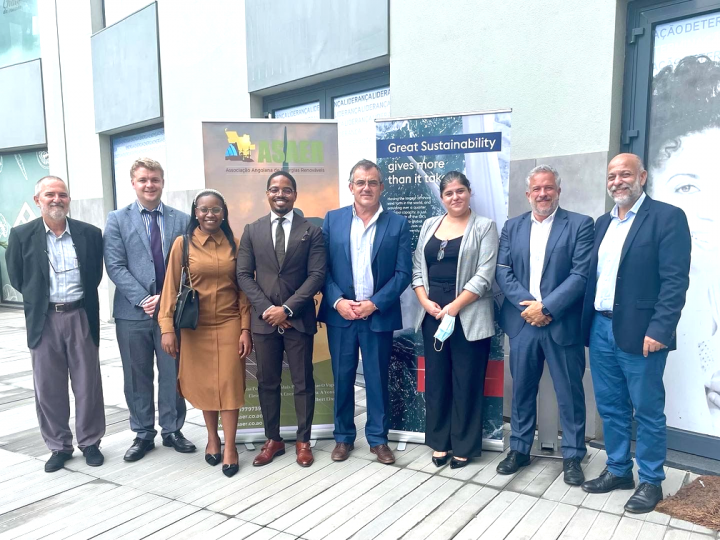ASAER creates GTER - Renewable Energy Working Group
GTER - Renewable Energy Working Group, held its first meeting on November 17th, co-organised by the British Embassy and ASAER, with the aim of discussing issues related to the financing of renewable energy (RE) projects in Angola, using capital from outside the country and with the support of national banking.
The session was attended by the Secretary of State for Energy, Engº Belsa da Costa, with representatives of the Ministries of Finance, Economy and Planning, institutions such as the regulator of the energy and water sector, IRSEA, public companies such as RNT, Prodel and Sonangol, banking entities such as BAI, BFA and Standard Bank, as well as representatives of the British embassy and the USA, and also entities from the private business sector.
At the meeting, it was highlighted that the main problem for the development of RE in Angola is not the lack of international financing, but rather the need to develop alternatives to the paths previously created to obtain guarantees for investors, seeking solutions already existing in the international financial sector, as well as, create a reliable and transparent framework for the export of dividends resulting from these investments.
Another concern pointed out at the session was the economic distortion created by a framework of subsidies to the price of electricity and fuels, which removes the capacity of the national single buyer, RNT, to establish itself as the partner with sufficiently robust financial skills to convey the necessary confidence to investors who intend to discuss energy procurement contracts with it, as a result of possible concessions for the establishment of electrification units based on ER.
The non-existent role of national banking in promoting this type of investment was also addressed, with the need for this sector to take this into account in a proactive manner, creating bonds with international finance institutions and the help to development sector, in addition to all those concerned with promoting the energy transition in the context of the decarbonisation of the planet, so that a movement more focused on small and medium-sized projects involving national companies can be created and allow the integration of ER solutions to solve the huge problem of the low electrification rate that is still taking place in the country.
In addition, it was emphasized at the meeting the importance of creating a permanent Working Group for the analysis of issues related to RE, with the purpose of presenting solutions to be put to the consideration of the decision-making bodies, as well as, providing pathways for those who wish to invest in the renewable energy sector
Source: 2nd ASAER Newsletter

